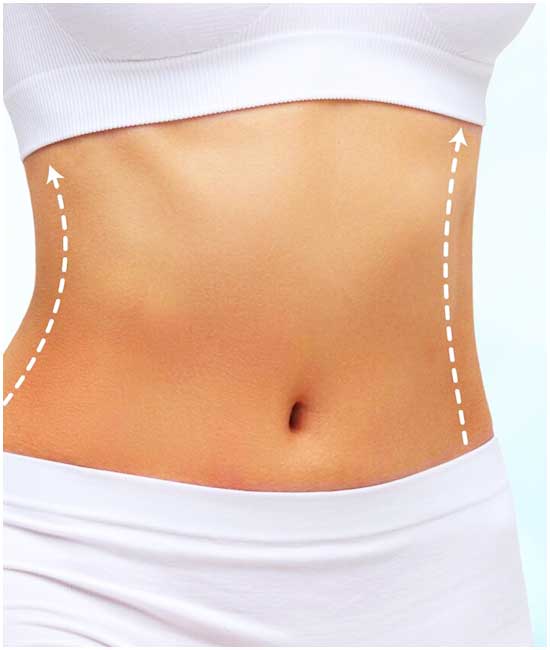Gastric Bypass in Turkey
Gastric bypass surgery is a widely recognized and effective treatment for obesity, offering significant weight loss and improvements in obesity-related health conditions.
In Turkey, gastric bypass surgery is performed by highly skilled surgeons in state-of-the-art medical facilities, making the country a popular destination for individuals seeking this life-changing procedure.
This introduction will delve into the key aspects of gastric bypass surgery in Turkey, including its benefits, the surgical process, and why Turkey is considered a preferred choice for this type of bariatric surgery.
(Weight Loss) Gastric Bypass in Turkey

Surgery Time
2-4 HOURS

Time in Turkey
7-10 DAYS

Hospitalization
2-3 NIGHTS

Recovery
Several weeks

Transportation
PRIVATE DRIVER

Accommodation
4/5* HOTELS
GET FREE CONSULTATION

What is Gastric Bypass?
Gastric bypass is a surgical procedure commonly used to treat obesity and related health conditions. During gastric bypass surgery, the surgeon creates a small pouch at the top of the stomach by dividing it into two sections. This small pouch restricts the amount of food that can be eaten at one time, leading to feelings of fullness with smaller portions of food.
Additionally, the surgeon reroutes a portion of the small intestine and connects it to the newly created stomach pouch. This rerouting bypasses a significant portion of the stomach and the upper part of the small intestine, which reduces the absorption of calories and nutrients from food.
By restricting the amount of food intake and reducing calorie absorption, gastric bypass surgery promotes weight loss. It also often leads to improvements in obesity-related health conditions such as type 2 diabetes, high blood pressure, and sleep apnea.
Gastric bypass is typically performed using minimally invasive techniques, such as laparoscopic surgery, which involves making small incisions in the abdomen and using specialized instruments to perform the procedure. This approach often results in less pain, faster recovery times, and reduced risk of complications compared to traditional open surgery.
Overall, gastric bypass surgery is a highly effective option for individuals struggling with obesity and its associated health issues, helping them achieve significant and sustainable weight loss for improved health and quality of life.
Types of Gastric Bypass in Turkey
In Turkey, various types of gastric bypass surgeries are offered to address obesity and facilitate weight loss. These procedures are tailored to meet the unique needs and health conditions of each patient. Here are some common types of gastric bypass surgeries available in Turkey:

Roux-en-Y Gastric Bypass (RYGB)
This is the most commonly performed gastric bypass surgery worldwide. During RYGB, the surgeon creates a small pouch at the top of the stomach and connects it directly to the small intestine. By bypassing a portion of the stomach and the upper part of the small intestine, RYGB restricts food intake and reduces calorie absorption.

Mini Gastric Bypass (MGB)
Mini gastric bypass is a simplified version of traditional gastric bypass surgery. It involves creating a longer and narrower gastric pouch and connecting it to a lower portion of the small intestine. MGB achieves similar weight loss outcomes to RYGB but may have a shorter operative time and fewer complications.

Single Anastomosis Gastric Bypass (SAGB)
Also known as loop gastric bypass, SAGB creates a single connection (anastomosis) between the stomach pouch and the small intestine. Although less common than RYGB or MGB, SAGB may be suitable for certain patients.

Revisional Gastric Bypass
In cases where a previous bariatric surgery has failed to achieve the desired weight loss or has resulted in complications, revisional gastric bypass surgery may be performed. This procedure aims to correct or improve the outcomes of the initial surgery.

Robotic-Assisted Gastric Bypass
Some medical centers in Turkey offer robotic-assisted gastric bypass surgery, where a robotic surgical system assists the surgeon during the procedure. This approach provides enhanced precision and control, potentially leading to shorter hospital stays and faster recovery times for patients.
How much does Gastric Bypass cost in Turkey?
Gastric Bypass procedures:
| Operation | Min Stay in Hotel (Nights) | Final Price (Euro) |
|---|---|---|
| Gastric Sleeve | 7 | €1200 |
| Gastric Balloon | 2 | €1100 |
| Stomach Botox | 0 | €650 |
Gastric Bypass Turkey Reviews
Gastric bypass surgery in Turkey has garnered positive reviews from patients who have undergone the procedure. Many individuals have reported significant weight loss and improvement in obesity-related health conditions after undergoing gastric bypass surgery. Patients have praised the expertise of Turkish medical professionals and the quality of care provided in Turkish clinics and hospitals. The success stories and testimonials of patients who have experienced life-changing transformations through gastric bypass surgery in Turkey contribute to its reputation as a reliable and effective treatment option for obesity.

benefits of having a Gastric Bypass surgery
Benefits of Having Gastric Bypass Surgery:
✅ Significant Weight Loss: Gastric bypass surgery helps individuals achieve substantial weight loss, often resulting in a healthier body weight and reduced risk of obesity-related health problems.
✅ Improved Health Conditions: Many patients experience improvement or resolution of obesity-related health conditions such as type 2 diabetes, high blood pressure, sleep apnea, and joint pain after undergoing gastric bypass surgery.
✅ Enhanced Quality of Life: Successful weight loss and improved health conditions can lead to an enhanced quality of life, allowing individuals to engage in physical activities, enjoy a wider range of foods, and experience increased self-confidence and overall well-being.
✅ Long-Term Results: Gastric bypass surgery offers long-term weight loss results for many patients, providing a sustainable solution to obesity when combined with lifestyle changes and ongoing medical support.
✅ Reduced Risk of Mortality: By addressing obesity and its associated health risks, gastric bypass surgery may reduce the risk of premature death and improve overall life expectancy for individuals struggling with severe obesity.
✅ Positive Impact on Mental Health: Achieving weight loss goals and overcoming obesity-related health challenges can have a positive impact on mental health, leading to reduced stress, improved self-esteem, and enhanced mental well-being.
✅ Customized Treatment: Gastric bypass surgery can be tailored to meet the individual needs and health goals of each patient, with medical professionals providing personalized care and support throughout the treatment process.
✅ Faster Recovery: Advances in surgical techniques and post-operative care have led to shorter hospital stays and faster recovery times for patients undergoing gastric bypass surgery, allowing them to return to their daily activities sooner.
Preparing for Gastric Bypass surgery
Preparing for Gastric Bypass Surgery:
- Medical Evaluation: Before undergoing gastric bypass surgery, patients typically undergo a thorough medical evaluation, which may include blood tests, imaging scans, and consultations with various healthcare professionals to assess their overall health and suitability for the procedure.
- Pre-operative Counseling: Patients receive pre-operative counseling from healthcare providers, including surgeons, dietitians, and psychologists, to understand the procedure, its risks and benefits, and the necessary lifestyle changes post-surgery.
- Dietary Changes: Patients are often required to follow a pre-operative diet plan to reduce the size of the liver and minimize the risk of complications during surgery. This may involve consuming a low-calorie, high-protein diet and avoiding certain foods and beverages.
- Lifestyle Modifications: Patients are encouraged to make lifestyle modifications to improve their overall health and prepare for the changes following surgery. This may include adopting healthier eating habits, increasing physical activity, and quitting smoking if applicable.
- Psychological Assessment: A psychological assessment may be conducted to evaluate the patient’s readiness for surgery and assess their understanding of the lifestyle changes required post-surgery. Counseling or support groups may be recommended for patients who may benefit from additional emotional support.
- Medication Management: Patients may need to adjust their current medications or supplements leading up to the surgery. It’s essential to inform healthcare providers about all medications, including prescription drugs, over-the-counter medications, and supplements, to minimize the risk of complications.
- Pre-operative Testing: Depending on the patient’s medical history and the surgeon’s recommendations, pre-operative tests such as an electrocardiogram (ECG), chest X-ray, or other diagnostic tests may be performed to ensure optimal safety during surgery.
- Support System: Having a strong support system in place, including family members, friends, or support groups, can be beneficial for patients undergoing gastric bypass surgery. Emotional support and encouragement from loved ones can help patients navigate the pre-operative period and prepare for the challenges ahead.
- Education and Information: Patients should actively participate in educational sessions and information sessions provided by their healthcare team to gain a thorough understanding of the surgical process, recovery expectations, dietary guidelines, and long-term lifestyle changes required for success.
- Follow-Up Care: Patients receive instructions for post-operative care and follow-up appointments to monitor their progress, address any concerns, and provide ongoing support throughout their weight loss journey. Compliance with post-operative care instructions is crucial for achieving optimal outcomes and maintaining long-term success.
Gastric Bypass Turkey Before and After
Before Gastric Bypass Surgery:
- Patients undergo a comprehensive medical evaluation to assess their suitability for surgery.
- Pre-operative counseling sessions are conducted to educate patients about the procedure, potential risks, and necessary lifestyle changes.
- Patients may be required to follow a pre-operative diet plan to prepare their bodies for surgery and reduce the risk of complications.
- Lifestyle modifications such as increased physical activity and quitting smoking may be recommended to optimize surgical outcomes.
- Psychological assessments may be performed to evaluate readiness for surgery and provide support as needed.
- Pre-operative testing, including blood tests and imaging scans, helps ensure patient safety during the procedure.
After Gastric Bypass Surgery:
- Patients experience significant weight loss in the months following surgery, typically leading to improved overall health and quality of life.
- Dietary changes are necessary post-surgery, including consuming smaller, nutrient-dense meals to accommodate the reduced stomach size.
- Patients may experience rapid weight loss during the initial recovery period, followed by gradual weight loss over time.
- Improved metabolic health, including better management of obesity-related conditions such as diabetes and hypertension, is commonly observed.
- Patients may need to adjust their medications as their weight decreases and metabolic parameters improve.
- Regular follow-up appointments with healthcare providers are essential to monitor progress, address any complications, and provide ongoing support for long-term success.
- Patients may undergo body contouring procedures to address excess skin and achieve a more sculpted appearance after significant weight loss.
Overall, Gastric Bypass Surgery in Turkey offers patients a chance to achieve substantial weight loss and improve their health and well-being, with careful pre-operative preparation and comprehensive post-operative care playing crucial roles in ensuring successful outcomes.
Considering Gastric Bypass Surgery in Turkey?
Considering Gastric Bypass Surgery in Turkey offers individuals struggling with obesity an opportunity to achieve significant weight loss and improve their overall health and quality of life. With its advanced medical facilities, experienced surgeons, and competitive pricing, Turkey has become a popular destination for bariatric procedures.
Patients considering Gastric Bypass Surgery in Turkey can benefit from:
- Expertise: Turkey boasts highly skilled surgeons who specialize in bariatric procedures, including Gastric Bypass Surgery. These professionals have extensive experience and are trained in the latest surgical techniques, ensuring safe and effective treatment.
- State-of-the-art facilities: Many hospitals and clinics in Turkey are equipped with modern facilities and advanced technology, providing patients with high-quality care throughout their surgical journey.
- Cost-effectiveness: Compared to many Western countries, Gastric Bypass Surgery in Turkey is often more affordable, making it accessible to individuals seeking effective weight loss solutions without breaking the bank.
- Comprehensive care: Patients undergoing Gastric Bypass Surgery in Turkey receive comprehensive pre-operative assessments, personalized treatment plans, and post-operative support to ensure optimal results and long-term success.
- Recovery and aftercare: Turkey offers a conducive environment for recovery, with many facilities providing comfortable accommodations and amenities for patients. Additionally, patients benefit from regular follow-up appointments and ongoing support to monitor their progress and address any concerns.
Overall, considering Gastric Bypass Surgery in Turkey provides individuals with a viable option for addressing obesity and improving their health and well-being under the guidance of experienced healthcare professionals in a supportive environment.
Recovery Process
The recovery process following Gastric Bypass Surgery typically involves several stages, each aimed at ensuring a smooth and successful recovery. Here’s an overview of what to expect during the recovery period:
- Immediate Postoperative Period: After the surgery, patients are closely monitored in the recovery room until they are stable. They may experience pain, discomfort, and nausea initially, but medications are provided to manage these symptoms.
- Hospital Stay: Most patients remain in the hospital for 2 to 3 days following Gastric Bypass Surgery. During this time, they receive intravenous fluids to stay hydrated and are gradually transitioned to a liquid diet.
- Transition to a Liquid Diet: Once discharged from the hospital, patients are advised to follow a strict liquid diet for the first few weeks. This helps the stomach heal and reduces the risk of complications. The diet may include clear broths, protein shakes, and sugar-free fluids.
- Introduction of Soft Foods: After a few weeks, patients can slowly introduce soft, pureed foods into their diet. It’s important to chew food thoroughly and avoid foods that are high in sugar or fat.
- Gradual Return to Solid Foods: Over the following weeks and months, patients can gradually transition to a regular solid food diet, focusing on lean proteins, fruits, vegetables, and whole grains. Portion sizes are significantly reduced compared to before surgery.
- Physical Activity: While it’s important to rest and allow the body to heal initially, patients are encouraged to gradually increase their physical activity as they recover. Light exercises such as walking can help improve circulation and promote healing.
- Follow-Up Appointments: Regular follow-up appointments with the surgeon and healthcare team are essential during the recovery process. These appointments allow for monitoring of weight loss progress, nutritional status, and any potential complications.
- Lifestyle Changes: Gastric Bypass Surgery is a tool for weight loss, but long-term success depends on adopting healthy lifestyle habits. Patients are encouraged to make dietary modifications, engage in regular physical activity, and attend support groups or counseling sessions to address any emotional or behavioral challenges.
Overall, the recovery process following Gastric Bypass Surgery requires patience, commitment, and adherence to medical recommendations. With proper care and support, patients can achieve significant weight loss and improved health outcomes over time.


You Should Avoid this after Gastric Bypass surgery
The recovery process following Gastric Bypass Surgery typically involves several stages, each aimed at ensuring a smooth and successful recovery. Here’s an overview of what to expect during the recovery period:
❌ Avoid overeating.
❌ Eat slowly and chew food thoroughly.
❌ Avoid high-calorie or high-sugar foods.
❌ Stay away from carbonated beverages.
❌ Attend all follow-up appointments.
❌ Adhere to nutritional guidelines.
❌ Quit smoking to support healing and recovery.
What Sets Us Apart?
In our clinic, we set ourselves apart with our unparalleled expertise, extensive experience, and steadfast commitment to ensuring patient satisfaction. We customize each treatment to suit the unique needs and preferences of our patients, ensuring they feel well-informed and at ease throughout their journey with us. Our dedication to excellence is evident in every aspect of our care, from the initial consultation to the ultimate results.